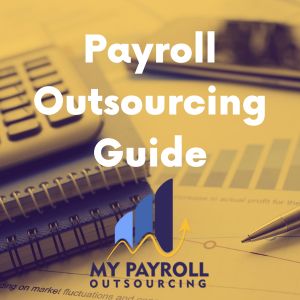
Effective Budget Management for Small Business Owners
Embarking on the thrilling journey of entrepreneurship often brings with it a multitude of exhilarating opportunities and, concurrently, a series of financial decision-making moments. Effective budget management becomes the rudder that helps navigate the financial seas, ensuring your small business sails smoothly through various operational and strategic phases. This article aims to shine a light on some strategies to manage budgets effectively and discusses various facets that businesses need to budget for to ensure a sound financial journey.
Crafting a Robust Financial Blueprint
A resilient budget is not merely a static document but a dynamic tool that aids in steering your business toward its financial goals. Begin with a clear understanding of your business’s financial inflow and outflow. It’s pivotal to have a granular understanding of your income sources, fixed and variable expenses, and potential financial sinkholes that may emerge unexpectedly. Utilizing technology and budgeting software can assist in keeping track, analyzing, and predicting financial trends, ensuring that your financial blueprint remains relevant and adaptive to market fluctuations.
Crafting a Financial Blueprint: The Cornerstone of Small Business Success
Imagine embarking on a nautical adventure without a well-crafted map. The financial journey of a small business can be much the same without a meticulous financial blueprint—sailing in vast, turbulent waters with no concrete direction. The financial blueprint of a business, often referred to as a budget, is paramount to steering the ship confidently and strategically amidst the economic waves and potential storms. Let’s delve deeper into why the financial blueprint is so crucial and explore some resources to sculpt a viable and sturdy financial plan.
Anchoring the Significance of a Financial Blueprint
A financial blueprint goes beyond mere numbers, becoming a strategic tool that lays down the financial path aligning with your business goals. Here’s why it stands out as a cornerstone:
- Guiding Light: A financial blueprint acts as a guiding light, offering a clear path amidst the complex and sometimes tumultuous sea of business operations and market dynamics.
- Informed Decisions: Armed with a robust financial plan, businesses are equipped to make informed, strategic decisions, whether it’s investments, expansions, or navigating through financial downturns.
- Cash Flow Management: Managing cash flow effectively is pivotal to keep the operational wheels turning smoothly, ensuring expenses, investments, and debts are managed without impeding the business’s financial health.
- Risk Mitigation: A well-structured financial blueprint helps identify and mitigate potential financial risks, ensuring the business is better prepared to weather through unexpected financial storms.
- Target Alignment: Financial plans ensure that every dollar spent or invested is aligned with the overarching business objectives, ensuring resource allocations are strategic and outcome-driven.

Setting Sail with an Ideal Financial Blueprint: Resources and Tools
Crafting a financial blueprint that is both sturdy and adaptable requires understanding, strategy, and utilizing the right resources. Here are some resources that can assist small business owners in navigating through the creation of a financial blueprint:
- Financial Software and Tools: Various software tools like QuickBooks, Xero, or FreshBooks offer functionalities that assist in creating, managing, and analyzing budgets, ensuring that the financial blueprint is data-driven and adaptable to real-time financial data.
- Small Business Administration (SBA) Resources: The SBA offers a plethora of resources, guides, and tools designed to assist small businesses in crafting their financial strategies. Their website provides templates and insights that can be pivotal in creating a financial plan that aligns with your business model and industry.
- Financial Consultants: Engaging with a financial consultant or a CFO-for-hire can provide tailored insights and guidance in crafting a financial blueprint. Their expertise can ensure that the financial plan is not only robust but also strategically aligned with the business’s goals and market dynamics.
- Online Courses and Workshops: Platforms like Coursera, LinkedIn Learning, and Udemy offer courses on financial planning and management, where business owners can enhance their understanding and skills in crafting and managing financial blueprints.
- Books and Literature: Numerous books provide valuable insights into financial planning for small businesses. Titles like “Profit First” by Mike Michalowicz or “Financial Intelligence for Entrepreneurs” by Karen Berman and Joe Knight offer practical advice and strategies that can be instrumental in financial planning.
- Forums and Networks: Engaging in forums and networks related to your industry and entrepreneurship, such as the Entrepreneurs’ Organization or local business chambers, can provide peer insights, experiences, and advice that can be invaluable in crafting a financial strategy.
The financial blueprint, with its myriad of components, anchors the business’s strategic and operational activities, ensuring each move is calculated, risks are mitigated, and the financial health of the enterprise is safeguarded. Crafting it with diligence, expertise, and leveraging available resources not only steadies the current journey but also ensures that the business is poised to navigate through future expansions and challenges effectively.
A Closer Look at Common Budgetary Needs
A well-charted budget encompasses various financial aspects of the business. Let’s take a closer look at the expenses that your budgetary ship needs to visit, ensuring all areas are financially well-nourished.
- Operational Expenses: This encompasses the day-to-day expenses that are fundamental to keep your business operations sailing smoothly. From rent and utilities to office supplies and travel, these recurrent expenses need a dedicated budgetary allocation.
- Marketing and Advertising: Nurturing your business’s visibility and customer acquisition endeavors require a dedicated budget for marketing and advertising activities, ensuring your offerings navigate successfully through the competitive market waves.
- Technology and Innovation: Allocating funds towards adopting and upgrading technology ensures that your business remains competitive and efficient, optimizing operations and customer experiences.
- Contingency Funds: An astute sailor is always prepared for unexpected storms. Establishing a contingency fund ensures that unforeseen financial challenges can be navigated without capsizing the operational vessel.

Steer Your Budget to Strategic Horizons
Embarking on the task of allocating your well-crafted budget across the multitude of business expenses can be akin to navigating through intricate archipelagos – each island representing a different expense domain, and the navigational strategy determining the sustenance and progress of your entrepreneurial voyage. Insightful and strategic allocation is pivotal, ensuring that each segment of your business is sufficiently funded without inadvertently starving another of resources. So, how does one ensure that the budgetary allocations are optimal, judicious, and in the best interest of the business’s financial health and goals?
Determining the Optimal Allocation: Striking a Harmonious Balance
- Assess and Prioritize: Begin by assessing the vital functions of your business, identifying which areas are critical to operations, growth, and sustainability. Prioritization ensures that vital components, such as raw materials or operational costs, are not compromised.
- Historical Data as a Compass: Utilize historical financial data to gauge the traditional spending patterns, understand where funds have been allocated previously, and identify if these allocations have yielded the desired outcomes. This reflection allows for informed revisions in the current allocations.
- Future Projections: Anticipate future needs and potential challenges. Considering elements like market trends, potential inflation, and forecasted growth can help anticipate future financial needs and allocate budgetary provisions accordingly.
- Maintaining a Contingency Reserve: Allocating a portion of the budget to a contingency fund is paramount. This reserve ensures that the business is equipped to navigate through unexpected financial needs or challenges without derailing the operational budget.
- Investment in Growth: Ensuring a dedicated allocation towards growth initiatives, such as marketing, research & development, and potential expansions, is pivotal to propel the business towards future horizons.
Diving into Key Areas of Allocation
- Operational Costs: From utility bills to raw materials and daily operational expenses, this forms the core of your business and should be adequately funded to ensure seamless operations.
- Payroll Expenses: Staff remunerations, benefits, and training investments fall here. A business must ensure that payroll is competitively and sustainably structured, recognizing that a motivated team propels operational success. At times, depending on the complexity and size, businesses may explore outsourcing payroll services to navigate through the intricate regulatory and compliance waters effectively.
- Marketing and Branding: Allotting funds for marketing campaigns, digital presence, and branding initiatives is vital to ensure that the business not only retains its market presence but also explores new avenues and demographics.
- Technology and Innovations: In an era propelled by technological advancements, budget allocations for technological investments and innovations are crucial to ensure that the business remains competitive and efficient.
- Legal and Compliance: Ensuring that there are funds allocated to navigate through legalities, compliances, and potential unforeseen legal navigations is vital to safeguard the business against potential pitfalls.
- Customer Experience: Investing in customer experience, through service enhancements, support, or product/service improvements, ensures that the business retains and grows its customer base.
Navigating through the task of budget allocations is an intricate yet pivotal component of financial planning. Ensuring that each domain is judiciously funded, while also maintaining a holistic view that aligns with both the current and future aspirations of the business, is the key to steering towards sustainable success.

The Importance of Consistent Financial Evaluation
While meticulous budget allocation provides a strong financial keel, the ocean of business management is ever-changing, demanding regular reassessment and potential recalibration of your financial strategy. In these dynamic waters, consistent evaluation and adaptive strategies ensure that your business remains resilient, agile, and capable of navigating through varied financial climates.
Financial Review
Conducting periodic financial reviews steers the business towards maintaining an equilibrium between its financial planning and actual outcomes. Whether it’s a variance in projected revenues, an unexpected expense, or an unanticipated opportunity – regular financial evaluations allow businesses to adapt, recalibrate, and navigate effectively towards their strategic goals.
- Assessing the Financial Compass: Regularly revisiting your financial statements, comparing actual outcomes against budgetary allocations, and analyzing variances allows you to identify areas that may require attention, adjustment, or further investment.
- Navigating Through Variances: Identify and analyze any variances between planned budgets and actual outcomes. Understanding the reasons behind these variances is pivotal to making informed and strategic adjustments in your financial planning.
- Exploring New Horizons: The business landscape is ever-evolving. Be it an emerging market trend, a new technological advancement, or shifts in consumer behaviors – regularly evaluating your financial strategy ensures that your business is poised to capitalize on new opportunities or navigate through potential challenges.
- Safeguarding Against Storms: A robust financial review is not only geared towards exploring opportunities but also safeguarding against potential challenges. Assessing liabilities, ensuring that debts are managed, and maintaining a healthy cash flow should be integral to your financial review process.
Financial Strategy: Adaptability is the Key
In an era where businesses navigate through both predictable waves and unexpected storms, maintaining an agile financial strategy ensures that your enterprise can not only withstand varied climates but also evolve and grow through them.
- Embracing Financial Technology: Leverage financial technology to streamline, automate, and enhance your financial management capabilities. From utilizing data analytics to predict trends to employing automated solutions for efficient financial management, technology is a steadfast ally in maintaining agile and insightful financial navigation.
- A Cohesive Financial Crew: Ensure that your financial team, or your financial partners, are aligned with your business goals, understand the landscape of your industry, and are equipped to navigate through its specific challenges and opportunities.
- Sailing Towards Strategic Alliances: Consider exploring strategic alliances, partnerships, or collaborations that can enhance your business capabilities, potentially opening up new markets, enhancing offerings, or providing operational efficiencies.

Understanding Payroll Expenses
- Payroll Management: Often one of the largest expenses for a business, managing payroll effectively is crucial. It’s not only about ensuring salaries are paid on time but also about complying with tax regulations and managing benefits. While larger entities may have dedicated HR departments, small businesses might find it financially savvy to consider outsourcing payroll services. This can ensure accurate and timely salary disbursements, tax calculations, and compliance management, while also freeing up internal resources to focus on core business activities. Furthermore, partnering with a seasoned payroll outsourcing service can offer insights into payroll tax savings and ensure that all regulatory compliances are adhered to meticulously, safeguarding against potential financial penalties.
- Training and Development: Investing in your crew ensures a competent and motivated team. Allocating budget for employee training and development enhances skills and ensures your business is propelled forward by an adept team.
- Asset Acquisition and Maintenance: Whether it’s purchasing new equipment or maintaining existing ones, a dedicated budget for assets ensures that your business machinery operates smoothly, without unexpected financial hiccups.
One of the essential components that demand scrupulous attention in budget management for small businesses is payroll. This isn’t merely confined to the salaries of your employees. Payroll encompasses various facets, which can significantly impact your overall budget and financial planning.
Key Components of Payroll
Payroll isn’t only about the straightforward salaries or wages that are paid to the employees. It involves several other financial components that need to be factored into your budgeting plan:
- Salaries and Wages: The gross pay before tax for all your employees.
- Taxes: This includes payroll taxes that employers are obligated to pay, such as Social Security and Medicare taxes, federal unemployment tax, and more.
- Benefits: If your company provides benefits like health insurance, retirement plan contributions, or any other non-wage benefits, these also need to be included in the payroll budget.
- Bonuses or Commissions: Any additional compensation that is performance-based should be anticipated and factored into your budget.
Potential Challenges in Managing Payroll
Managing payroll is a comprehensive task and comes with its set of challenges and complexities:
- Compliance: Adhering to federal, state, and local tax laws, ensuring that your business is compliant with all relevant legislations.
- Accuracy: Ensuring that every employee is compensated accurately and in a timely manner to maintain satisfaction and morale.
- Budget Management: Balancing competitive compensation to attract and retain talent, while also ensuring that payroll expenses are sustainable and aligned with your business’s financial health.

Payroll and Its Impact on Cash Flow
A solid understanding and strategic management of payroll is pivotal as it is often the largest expense and plays a vital role in maintaining positive employee relations. It is crucial to ascertain that while your business offers competitive compensation packages to attract talent, it should not jeopardize the overall financial health of the business.
The Strategic Approach Towards Payroll Management
- Forecasting: Accurate forecasting of your payroll expenses, including any potential increases or bonuses, aids in avoiding any unexpected financial strain.
- Automation: Employing payroll software or systems to ensure accurate and timely compensation to employees, while also ensuring compliance with tax obligations.
- Outsourcing: For some businesses, outsourcing payroll management to specialized firms can be a strategic decision, ensuring expertise in managing this crucial function while allowing the business to focus on its core operations.
Understanding and effectively managing payroll is paramount for maintaining both the financial health of your business and the morale of your employees. Strategic planning, vigilant management, and considering options like outsourcing can streamline this essential function, ensuring it aligns seamlessly with your overall financial blueprint and business strategy.
Should you need assistance, especially in the intricate domain of payroll management, expert help is always available to ensure your journey remains unencumbered and your focus unwavering towards your entrepreneurial destination.

